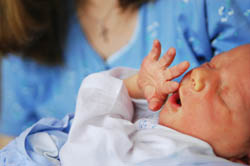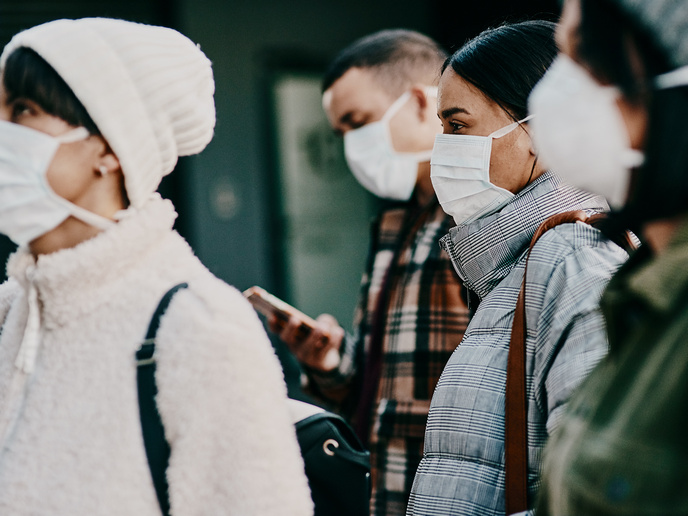Vaccinating neonates against respiratory pathogens
Respiratory infections such as Pertussis or whooping cough affect 40 million people annually and can be prevented by vaccination. Current vaccination strategies require at least three doses to be given one or two months apart to confer protection. However, vaccination usually starts two months after birth rendering infants below the age of six months highly susceptible to infection. Despite the immaturity of the immune system at birth, previous studies showed that early vaccination with the whooping cough agent Bordetella pertussis generates a strong immune response. The EU-funded CHILD-INNOVAC project developed an attenuated B. pertussis strain called BPZE1 to be delivered as a nasal live vaccine. This would mimic the natural infection without causing disease. Pre-clinical testing in various animal models ensured the safety and stability of this vaccine, making it viable for clinical development. Among the most exciting results of the project was the protective effect of BPZE1 in mice against non-related respiratory viruses, such as respiratory syncytial virus (RSV). This intriguing protection was found to correlate with an increase in regulatory T cells, and also with IL-10 and IL-17 production. Following harmonisation of the study protocols for immunological evaluation, 400 children were enrolled in three countries. In order to evaluate the duration, strength and diversity of the elicited immune responses following vaccination or infection, partners developed assays for the detection of B. pertussis-specific memory T cells and antibody-secreting B cells. Methods for manufacturing a nasal vaccine for human use were developed and the vaccine was administered to healthy adult male volunteers. Trial objectives included the assessment of safety, tolerability and immune responses of the vaccine as well as the colonisation properties of the modified B. pertussis strain. By demonstrating the safety of the BPZE1 vaccine, the CHILD-INNOVAC consortium facilitated its good manufacturing practice (GMP) production, toxicology studies and the first-in-man phase I clinical safety trial. These vaccines will be beneficial for neonates by providing long-lasting immunity against respiratory infections especially in developing countries where booster vaccinations may be difficult to implement.







